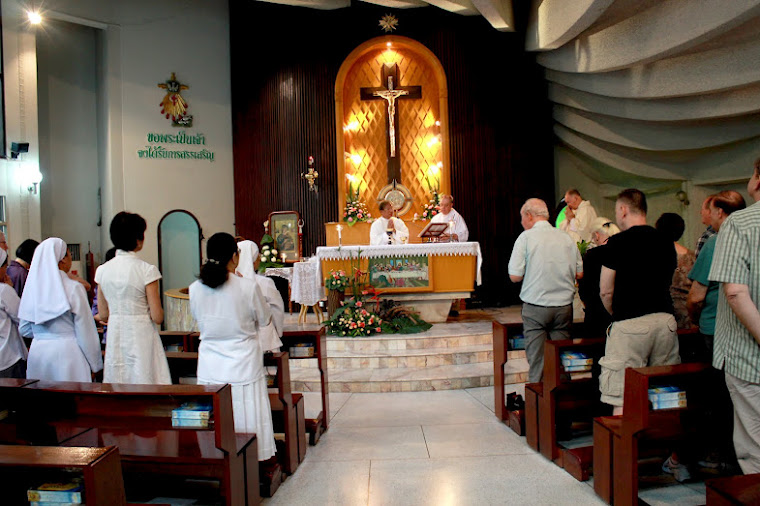Yesterday, I rang a Thai I know to see how she was in the floods. She lives in Bangkok.
Two weeks ago, when the floods were to the north of Bangkok, she was telling me that this was punishment for the Red Shirts and what they have done to the country. This speaks of one of the political divides in Thailand - Red Shirts versus Yellow Shirts. The present government has its Red Shirt support, while the Yellow Shirts are more Bangkok and for the previous Abhisit government. She is obviously a Yellow Shirt supporter.
Yesterday, she told me that the floods were about to engulf her house and her cry now was - Why is this happening to us?
The point in presenting this is not to enter into Thai politics but to make a point about humanity and how we explain away suffering.
For this woman, while the floods were away up in the north of Bangkok somewhere, in areas that support the government, it was easy to explain away a great national tragedy by holding the view that the gods were punishing others for their wrongs. That so easily serves to keep discomfort and the hard parts of life out there, away from us, by blaming them away on others who are not part of us.
Now, that the floods are upon her and are very much a part of her reality, it is a different story. It is much more personal and much harder to explain away. So the great question of humanity, throughout history, is now asked by her in the face of suffering - Why? When it is all too hard for us, the easy way out is just to put your hands up in the air and ask - Why? More specifically - Why are the gods doing this to us?
Neither way of approaching such a disaster is very helpful or rational. While understandable, both are rather simplistic approaches to a complex dilemma. Both approaches put the blame out there, onto someone else. Neither involves taking responsibility and asking the needed and hard questions.
Philosophically, God does not just sit up there creating human suffering. In this disaster, we eventually have to start asking the hard questions. The 'Why did this happen?' questions. This will lead onto our looking into what part did we have to play in all of this. The issues will then arise - care for the environment, urban planning, water management and so the list will grow. It will then be our challenge of facing these issues and acting on them.
This leads onto the other basic human stance that such simplistic approaches, as voiced by my Thai friend, attack. Basically, no matter who we are in Thailand - Thai or farang, yellow shirt or red shirt, aristocrat or peasant, city person or farmer - we are all in these floods together and we need each other to face their destruction. Such approaches, as my friend's, serve to continue the divides which act against our own good. The basic reality is that, no matter who we are, we all need each other, especially in the face of adversity.


No comments:
Post a Comment